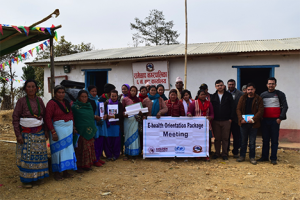
E-Health Nepal
- Overview
E-Health – Under the partnership of UNICEF/Nepal and Golden Community. This programme consists of two parts to improve delivery of health service using eHealth. The first part is about tele-consultation between health workers and the second part is about vaccination reminder services for early childhood vaccination.
The first part of the program is about development of tele-consultation mechanism to improve maternal, newborn and child health. According to Nepal MICS 2014, under-5 mortality rate was 40 in rural but 26 in urban. Similarly, more women received antenatal care from skilled providers in urban (93 per cent in urban and 65 per cent in rural). This programme will contribute to achieve health equity. Within the network between health workers, referral mechanism for the rural health workers and emergency health care service will be improved. In addition, health workers will receive technical support at a right time.
Regarding the second part, vaccination reminders will be sent to parents/caregivers to increase the childhood immunization coverage. Immunization is a proven and cost-effective tool against infectious diseases of newborns and children under 5 years of age.According to Nepal MICS 2014, 67 per cent of children aged 12-23 months and 66 per cent of children aged 24-35 months had received all recommended vaccinations by their first birthday. It means that over 30 per cent of children remained unvaccinated. SMS vaccination reminders could increase the childhood immunization coverage. According to Nepal Telecommunications Authority 2016, the rate of mobile subscription was 113.7%, which shows an opportunity to maximize the benefits of eHealth. In this program, parents/caregivers will receive SMS reminders before the due date for the children’s next vaccination. SMS reminders will encourage more mothers/caregivers to bring their children to immunization sessions on time.
Related Project
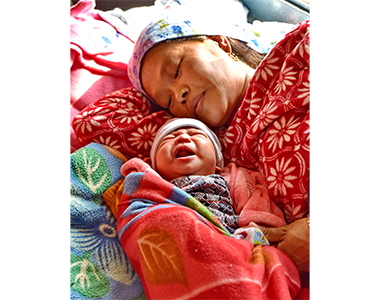
Implementing Respectful Maternity Care (RMC) Intervention to Improve Perinatal Mental Health
Several studies in low- and middle-income settings have shown that mistreatment and disrespectful care during childbirth is a major...
Learn More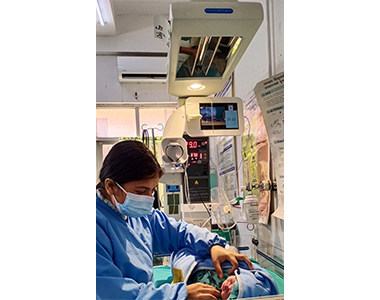
Improving Adherence to Neonatal Resuscitation Using Machine Learning at Quality Improvement Approach (Pre-MALA)
High quality neonatal resuscitation is a key to save newborn lives, prevent brain injury and optimize child development, yet...
Learn More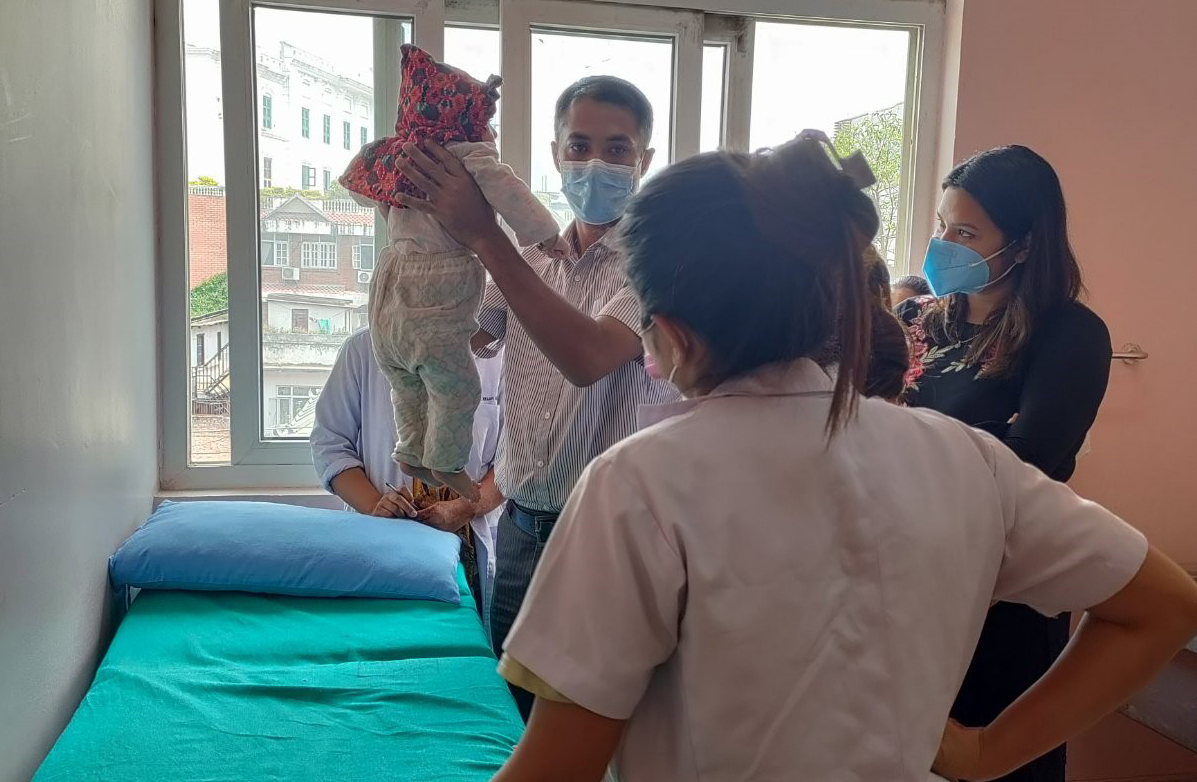
Feasibility of Remote General Movements Assessment (GMA) for Early Recognition and Rehabilitation of Cerebral Palsy in Nepal
Cerebral Palsy (CP) is a syndrome of non-progressive movement and posture disorder caused by damage to the developing brain...
Learn More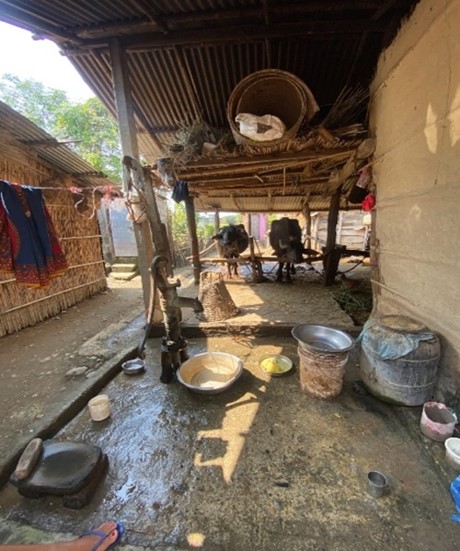
Navigating Food Insecurity During the Pandemic: The Role of Social Networks Among Pregnant Women in Nepal
Food insecurity is defined as a state in which an individual “lacks regular access to sufficient, safe and nutritious...
Learn More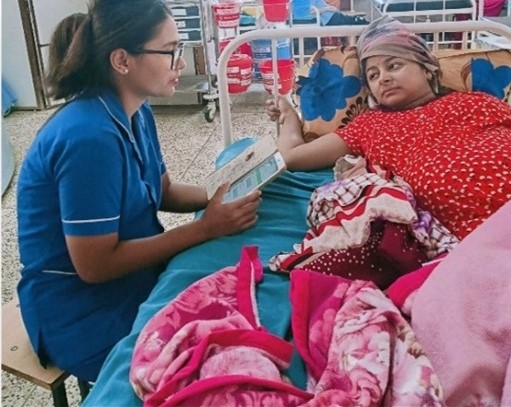
Investigating heat wave risk perception, vulnerability and adaptation among pregnant women
Over the past 15 years, Nepal has experienced a series of catastrophic weather events, with the Terai region emerging...
Learn More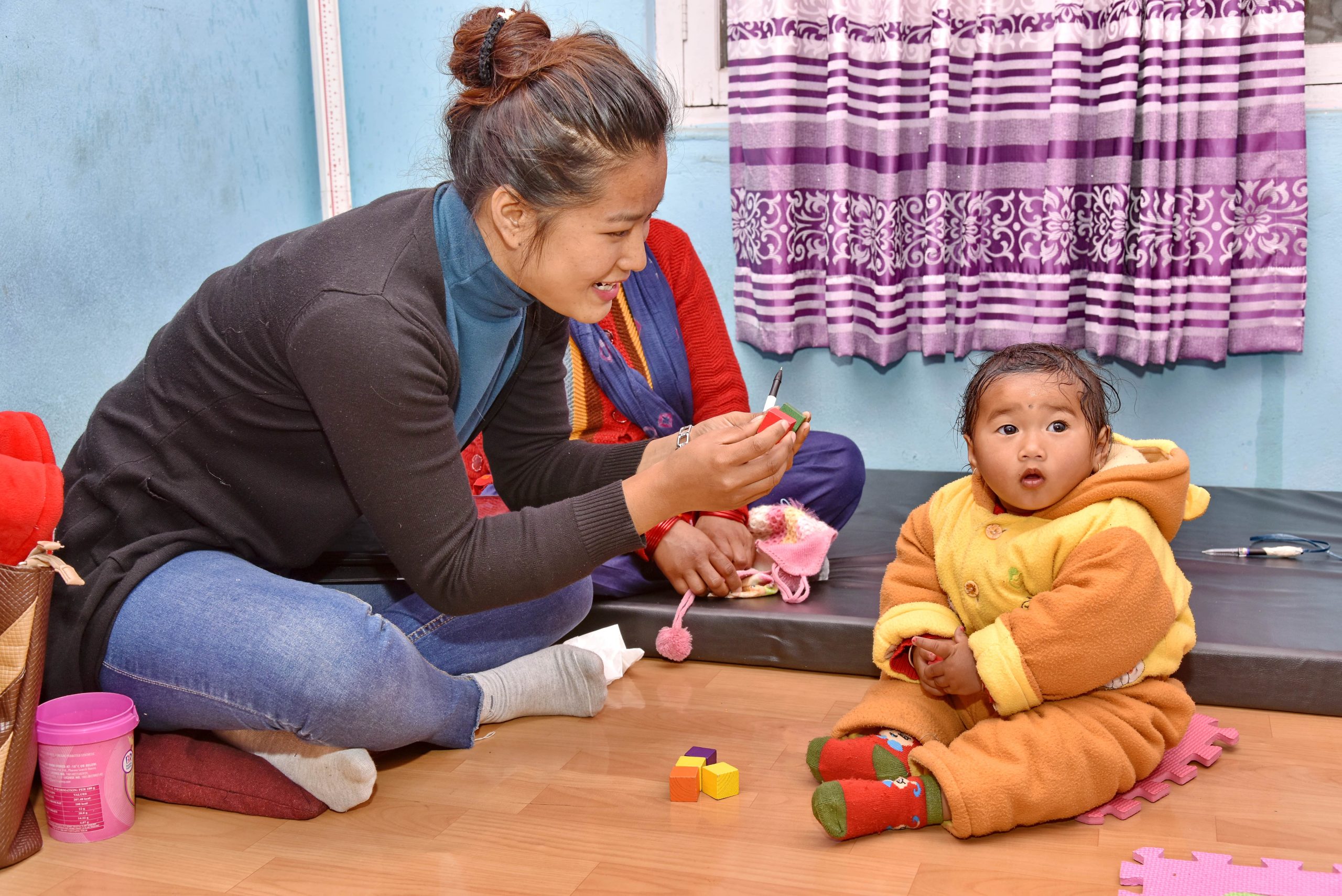
Every Newborn – Simplified Measurement Integrating Longitudinal Neuro Development and Growth (EN-SMILING)
In low- and middle-income countries, there has been a noticeable decline in mortality rates among children under 5 years...
Learn More
